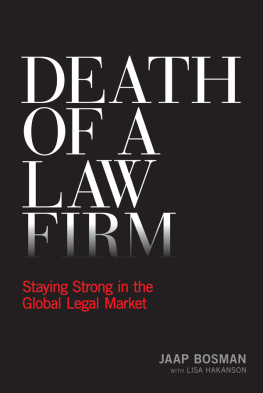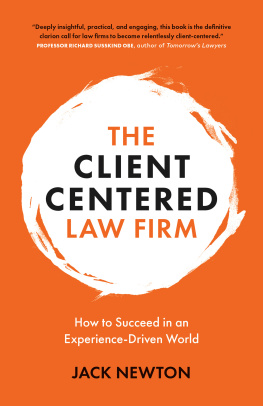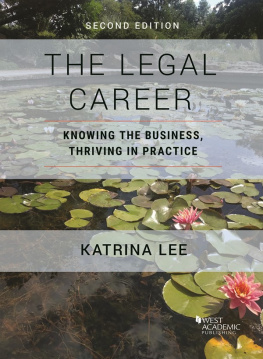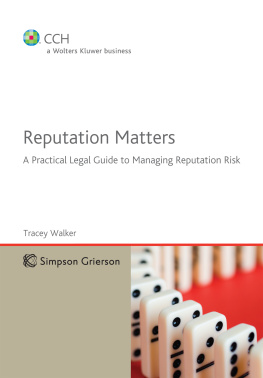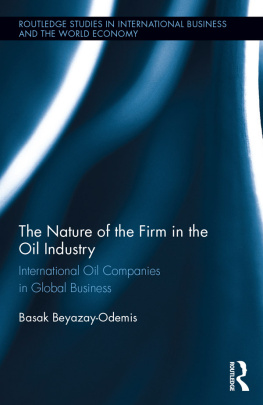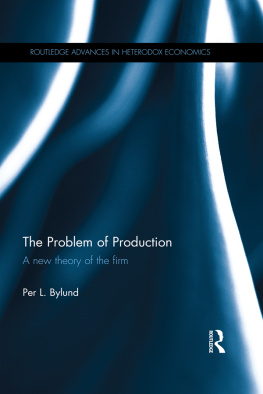Jaap Bosman - Death of a Law Firm: Staying Strong in the Global Legal Market
Here you can read online Jaap Bosman - Death of a Law Firm: Staying Strong in the Global Legal Market full text of the book (entire story) in english for free. Download pdf and epub, get meaning, cover and reviews about this ebook. year: 2017, publisher: American Bar Association, genre: Business. Description of the work, (preface) as well as reviews are available. Best literature library LitArk.com created for fans of good reading and offers a wide selection of genres:
Romance novel
Science fiction
Adventure
Detective
Science
History
Home and family
Prose
Art
Politics
Computer
Non-fiction
Religion
Business
Children
Humor
Choose a favorite category and find really read worthwhile books. Enjoy immersion in the world of imagination, feel the emotions of the characters or learn something new for yourself, make an fascinating discovery.
- Book:Death of a Law Firm: Staying Strong in the Global Legal Market
- Author:
- Publisher:American Bar Association
- Genre:
- Year:2017
- Rating:3 / 5
- Favourites:Add to favourites
- Your mark:
- 60
- 1
- 2
- 3
- 4
- 5
Death of a Law Firm: Staying Strong in the Global Legal Market: summary, description and annotation
We offer to read an annotation, description, summary or preface (depends on what the author of the book "Death of a Law Firm: Staying Strong in the Global Legal Market" wrote himself). If you haven't found the necessary information about the book — write in the comments, we will try to find it.
Jaap Bosman: author's other books
Who wrote Death of a Law Firm: Staying Strong in the Global Legal Market? Find out the surname, the name of the author of the book and a list of all author's works by series.
Death of a Law Firm: Staying Strong in the Global Legal Market — read online for free the complete book (whole text) full work
Below is the text of the book, divided by pages. System saving the place of the last page read, allows you to conveniently read the book "Death of a Law Firm: Staying Strong in the Global Legal Market" online for free, without having to search again every time where you left off. Put a bookmark, and you can go to the page where you finished reading at any time.
Font size:
Interval:
Bookmark:
Staying Strong in the Global Legal Market
WITH LISA HAKANSON
For decades, the business of law has been one of the most profitable business models. Earnings and returns on investment are among the highest in the market. Many partners make more money than elected heads of state and have earnings that are comparable to those of CEOs of sizable companies. Clearly, the business of law has been doing something right.
Decade after decade, partner income has been steadily growing. Only the 2008 global financial crisis managed to cause a little dip. Almost every law firm circumvented this dip by quickly initiating cost-cutting operations. Because of these measures, most law firms even managed to increase profits beyond the precrisis levels.
Cutting costs, however, is a purely cosmetic solutiona matter of hygiene that improves the results without improving the underlying business. Applying cosmetics, therefore, can be dangerous.
The international legal landscape has been changing significantly over the last decade. We witnessed the rise of omnipresent international business law firms; we saw new alternative legal service providers enter the market. The Big Four accountants are setting up legal services arms that are becoming a factor to be reckoned with. In-house departments have become stronger, better qualified, and better organized than ever before. All of these developments create increased competition in the market.
One factor that will have a more fundamental impact than any other on the business of law is commoditization the silent killer that will cause the death of many law firms. Commoditization arises when, from the clients perspective, multiple law firms and multiple lawyers can perform the same task equally well. Commoditization does not equal simple work or bulk work, as we are sometimes led to believe. On the contrary, commoditized legal work can be quite complicated and require a high level of skills. It is the mere fact that many lawyers have the same skills that will make a certain type of work a commodity. Invariably, lawyers suffer from commoditization blindness, denying that their work is commoditized. This denial makes the issue even more severe. Commoditization will inevitably lead to pressure on price, whether it is by clients demanding lower rates or by pushing work down (handing it to a less-expensive law firm). Due to its eroding effect on profits, commoditization is the single-most important disrupting factor in the legal market today. This book is the first to raise awareness to the potentially devastating effects of commoditization.
Dark clouds are building heavily behind us in the sky. When the right measures are taken, it is perfectly possible not only to survive the storm but to come out even stronger than before. To compensate for the eroding effect of commoditization, all law firms have to do is change their business model. However simple it might seem, changing a business model might be one bridge too far for most firms. As this book argues, the inner workings of law firm partnerships are rigged against change. In reading this book, you will gain an unprecedented insight into the psychology of the partner groupor maybe even a confronting look in the mirror.
The good news is that the global legal market will continue to grow. We are not in a shrinking market. The players in the market, however, will be significantly reshuffled in the next five years, leading to the rise of some and to the death of others. Read the book and make sure your firm ends up in the right category.
Jaap Bosman
In May 2001, I made my first visit to Los Angeles. I was staying at the Beverly Wilshire Hotel at the end of Rodeo Drive where Pretty Woman had been filmed a few years earlier. During the hour-long drive from the airport to my hotel, I struggled to find any glamour. Looking out of the window of my taxi, I dismissed Los Angeles as one of the uglier and more run-down cities I had seen. A feeling of dreariness settled in as nothing but low, square concrete boxes, devoid of charm and character, lined the streets along the way. It felt like the Los Angeles riots had taken place the week before. As it turned out, the California electricity crisis was at its peak during my visit, and we were plunged into darkness on a few occasions by power outages. Failing power supply in a first-world country instills one with a sense of doom.
The next day, I had reasons to adjust my assessment. The steel-and-glass buildings of downtown Los Angeles, its sharp-suited inhabitants and suave business clubs, stood in a poignant juxtaposition to the lackluster city surrounding it. At the time, the law firm I was with had an office in Singapore, which entitled us to membership of the Pacific Rim Advisory Council (PRAC), a strategic alliance between top-tier law firms in the broader Pacific Rim region. My reason for going to Los Angeles was to attend PRACs 29th International Conference, hosted by Brobeck, Phleger & Harrison. The headquarters were situated in a brand-new, shiny glass-and-steel structure that did what it was supposed to do: embody success and strike awe in its visitors.
Brobeck, Phleger & Harrison was a 77-year-old blue-chip firm based in San Francisco, California. At the time of my visit, the firm consisted of 754 attorneys spread over eight offices, and its profits per partner had soared to more than $1 million a year. It was a thoroughbred law firm formed in 1926 by three lawyers from Morrison & Foerster (then Morrison, Dunne & Brobeck) who spent the following decades building up a portfolio of A-list clients based in the San Francisco area. Managing partner Herman Phleger served as an advisor to Bernard Baruch during the creation of the United Nations in the 1940s. In 1980, the firm established an office in Palo Alto to serve expanding technology companies. By the mid-1990s, Brobeck served clients such as Cisco Systems, Sun Microsystems, Nokia, and Nike. During the dot-com boom between 1998 and 2000, Brobecks revenue jumped from $214 million to $314 million.
During my visit in May 2001, Brobeck was the perfect host. We were taken to see the new Getty Museum that had been finished a few years earlier. Perched on its hill in the Brentwood neighborhood, it provided views overlooking Los Angeles along with world-class architecture. We were whisked off to lunch at the prestigious California Club situated a stones throw from Brobecks headquarters. The California Club is a private club established in 1888 and now situated in the heart of downtown Los Angeles in an Italian Renaissancestyle building from 1930. Its membership is exclusive, and although having diversified adequately since the 19th century, the club still conjured images of gentlemen droning on and discussing business while having a drink. In the evening, we were invited to an intimate, luxurious dinner hosted by a partner in his own home. The weather allowed for extensive use of the lush garden, and the evening was the perfect mix of tasteful familiarity and representative pampering.
Although I remember all these details quite vividly, there is one memory that stands out: Tower Snow Jr. One cannot paint a picture of Brobeck in 2001 without also providing a portrait of its charismatic leader. Tower Snow was, and still is, a securities litigator who, as its managing partner, took Brobeck to its soaring heights in the late 1990s and early part of the first decade. He had a strategy of aggressively wooing high-tech clients and going after lateral partners. The firm grew by 40 percent in one year alone. Taking the stage to address the attendees of the PRAC conference was a tall, sharply attired man who oozed confidence, a modern-day Apollo residing in the unattainable heights of a US top-tier business law firm. He delivered a riveting speech on how he saw the future of legal business. The audience hung on his words, in thrall. He painted with the large brush strokes of a gifted visionary and spoke of taking the firm public. A year later, Tower Snow was ousted. He took with him 50 Brobeck lawyers and the firms death spiral was revealed for all to see. During one of the plenary sessions on the first day, I had given a presentation on branding and positioning of law firms. Later that same day, our host firm proudly presented its unprecedented nationwide television advertisement campaign, which had just been launched, making it the first corporate law firm in the United States to advertise on national television. It was reported that the campaign, which ran on CNN, might have cost $10 million. As it turns out, Tower Snow was more Icarus than Apollo.
Font size:
Interval:
Bookmark:
Similar books «Death of a Law Firm: Staying Strong in the Global Legal Market»
Look at similar books to Death of a Law Firm: Staying Strong in the Global Legal Market. We have selected literature similar in name and meaning in the hope of providing readers with more options to find new, interesting, not yet read works.
Discussion, reviews of the book Death of a Law Firm: Staying Strong in the Global Legal Market and just readers' own opinions. Leave your comments, write what you think about the work, its meaning or the main characters. Specify what exactly you liked and what you didn't like, and why you think so.

